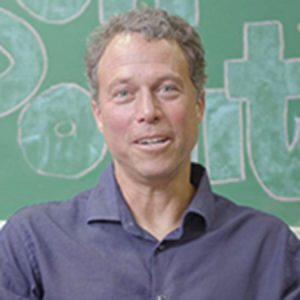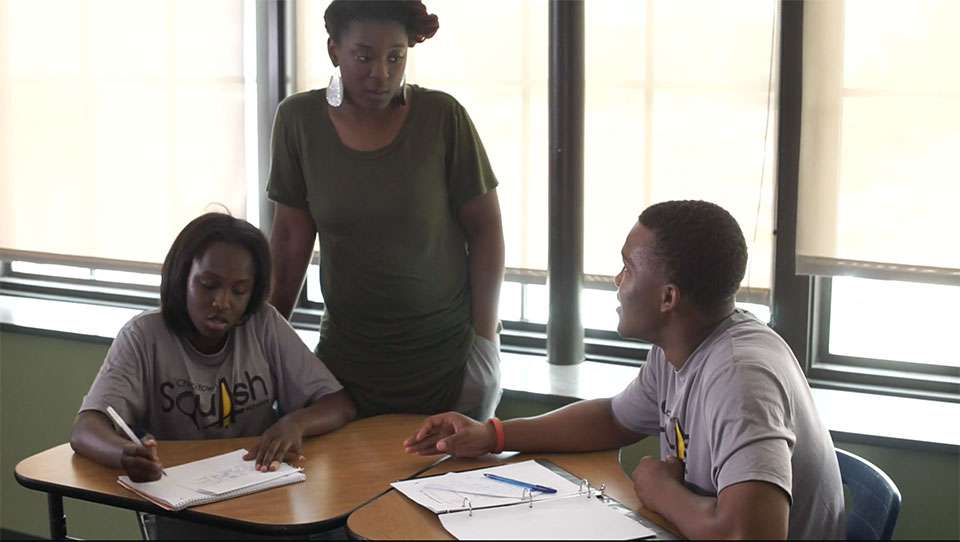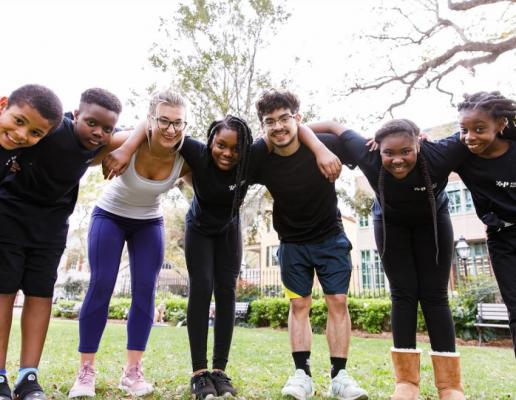“My daughter didn’t really think about graphic design to the level she thought about until she got here,” said Calvin Logan. “So, it’s really building a fortress of positivity that can bring out the best in you.”
“They are very helpful. They give us a lot of words of encouragement. Tell us that we can do us and just push us through achievement,” said Jasmine Logan.
And for the Kids on Point students who do enroll in college, there is a lot of support needed once they go away such as tutoring, mentoring, and scholarship funding. Executive Director Lauren Herterich says that the length of commitment to the kids is what makes the program unique and successful.
Impact of COVID-19
Once the pandemic hit last year, regular programming was paused. Over the summer, Kids on Point delivered each student “camp in a bag” with academic and other activities to keep busy and entertained while in quarantine.
When fall arrived, they tried virtual programming.
“Virtual programming was really difficult,” Lauren said. “There was a decline in the academic support we were able to provide. So, we developed a plan with the College of Charleston to get the kids back on-site safely as soon as possible.”
Kids on Point was able to help the kids begin to return to their facilities last October. At that time, 75% of kids were still participating virtually. All of the kids were able to return on-site in January 2021.
The obstacles COVID-19 presents also come with some opportunities to deepen programming. For example, they have reduced class sizes of 10 students per grade and hired more staff.
“Although there are a lot more logistics and increased expenses involved with the smaller classes, it really allows us to dive in with them and focus on math and reading, where the majority of academic struggles lie,” Lauren said.
Kids on Point summer camp re-launches this year. All ninth through twelfth graders in the program will have internship and first-job experiences.
“The leadership and determination Todd has shown is what we hope to inspire in all of our Fellows who work to address systemic issues facing South Carolina,” said Ann Marie Stieritz, president and CEO of Liberty Fellowship. “We are proud of Todd. His leadership and mentorship with the Kids on Point team ensures that the program will have an impact in South Carolina for years to come. It’s a generational vision in both model and mission.”
When Todd stepped down, Kids on Point was able to fund a college scholarship in his name for one senior Kids on Point graduate every year. The scholarship is more flexible than a traditional scholarship and can be spent on basic needs.
And although Todd is stepping back, he has big hopes for the future.
“I hope we can fund even more scholarships, and I would love to see the Kids on Point model expand to other colleges and universities,” Todd said.
Visit kidsonpoint.org to learn more about the program.







